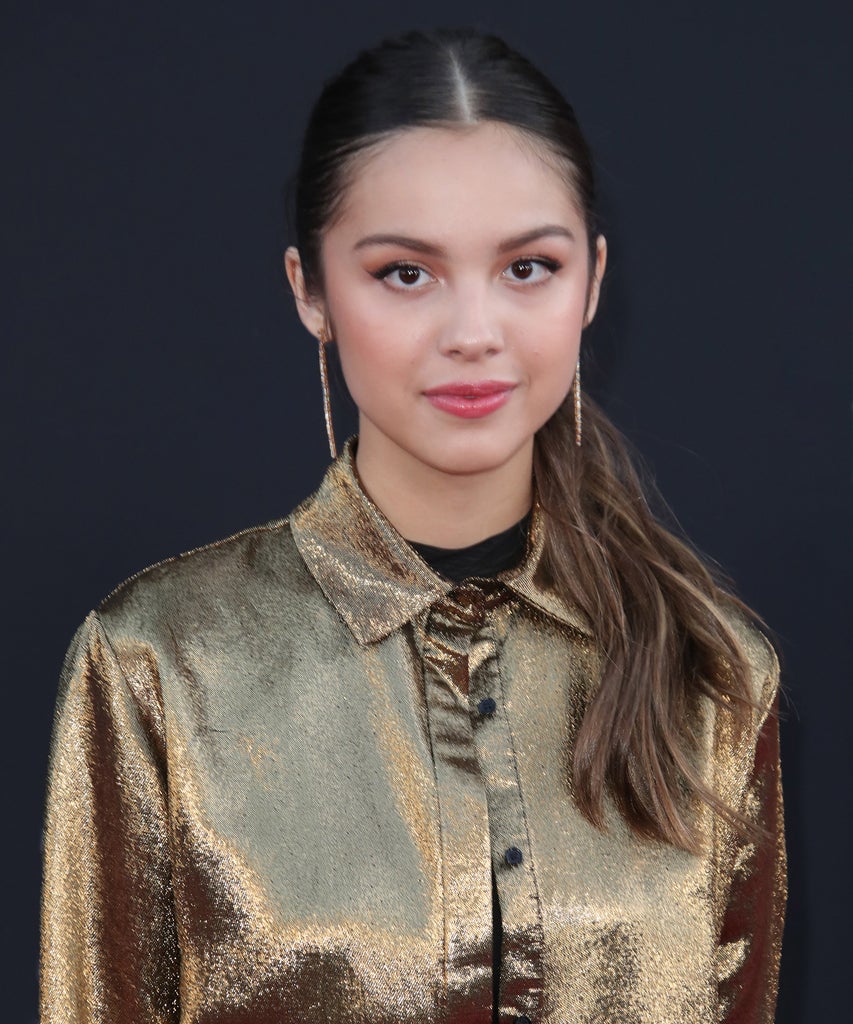
Olivia Rodrigo
‘Maleficent: Mistress of Evil’ film premiere, Arrivals, El Capitan Theatre, Los Angeles, USA – 30 Sep 2019
I got my driver’s licence in 2001. Olivia Rodrigo got hers during this pandemic. Despite our age difference, I am one of many “geriatric millennials” who sings her songs into my hairbrush.
When I first listened to “drivers license,” I was transfixed: Here is a 17-year-old girl belting out the exact experiences I had as a 17-year-old girl. Like many others in my micro-generation, it made me wish that I had a musician like that when I, myself, was 17 and driving through the suburbs at night and crying while being lovesick — which was, like, half my life for a while. Who else is going to truly encapsulate and do justice to that experience in song? Morrissey?
Ever since the former Disney channel actress’ album Sour came out last week, many “elder” millennials — people born between 1980 and 1985 — as well as younger millennials/Gen Z cuspers who say they already feel old (just you wait), have admitted that they, too, are playing the album on repeat. But, judging by the fact that some people are spending more time making memes about how cringe-worthy it supposedly is to like Rodrigo than actually enjoying her music, many also seem deeply ashamed of it. A typical olds-listening-to-Sour meme is captioned, “me close to my 30s listening to Olivia Rodrigo” with an added GIF of Amy Poehler’s “cool mom” character from Mean Girls saying, “Okay! You guys keep me young, I love ya so much!” And a recent headline from The Washington Post reads: “Why millennials can’t just let ourselves enjoy Olivia Rodrigo.”
me, front row at Olivia Rodrigo’s tour pic.twitter.com/vLflzwHQtH
— gemma chan stan account (@rude__boy__) May 21, 2021
I think we can, though — and should. Internet culture has egged on a “war among generations,” as the Post notes, between Gen Z and millennials, encouraging us to play up our differences in ways that are mostly petty. But, while there are, of course, differences, there is no actual “war” and most people truly don’t give a shit about this supposed intergenerational strife. So, yes, it’s entirely possible to enjoy the music of someone who’s a lot younger than you without a self-deprecating wink — and it’s not embarrassing to like a teenager’s music unless you let it be. Admittedly, I myself didn’t think I would like the entire album, and some of it truly didn’t move me. But then, “enough for you” came on while I was on a walk and I had to turn into an alley so people wouldn’t see my ageing self hysterically bawling — and I was a convert.
While some millennials are embarrassed that they enjoy “Gen Z” music, it’s worth pointing out that many of us listened to the music of singer-songwriters who were much older than us when we were younger, without shame. Which leads me to a theory: Millennials are really turning to Olivia Rodrigo because many of us spent our middle and high school years listening to either male artists who didn’t fully speak to our experiences or women singer-songwriters who were considerably older than us. Alanis Morissette’s Jagged Little Pill came out when I was 10, and I remember opening the lyrics jacket on the cassette tape and asking my mom to read through it with me and explain what she was singing about. (“Well, it seems like she still loves her ex-boyfriend, but she also seems angry at him?”) I listened to Fiona Apple’s “Never Is A Promise” on repeat specifically because I knew she wrote it when she was just 16, even though Tidal came out a few years later. Tori Amos was in her late 30s by the time I wore out Little Earthquakes. These were women whose life experiences I was both in awe of and terrified by, who described worlds where I had never ventured and feelings I hadn’t yet fully tapped into.
“I think the thing about Olivia Rodrigo is that her music is very clearly pulling inspiration from the angsty, rage-y, I’m-a-young-sad-cool-girl artists from many of our teen years and a lot of the geriatric millennial effusiveness about her is drawn from that sense of nostalgia,” writer Leah Johnson said on Twitter. This is definitely true, but I think part of the draw is also that, unlike the angsty and rage-y musicians of our youth, Rodrigo sings about wearing makeup to make someone like her more and not being able to parallel park, experiences that actually happened to a lot of us as teenagers but weren’t covered by our favourite artists at the time. With Rodrigo’s music, we get to feel nostalgia for music that didn’t exist for us when we needed it most.
“I think as a geriatric millennial (I’m reclaiming the hateful term) I adore Olivia Rodrigo and Taylor Swift so much bc at 17 (in 2001) I listened to a lot of confessional music but it was ALL dudes,” TV writer Diana Metzger said on Twitter. “So listening to OR and TS I get to revisit those years through a lens that feels much more accurate to what I experienced as a young woman. It’s really nice and I’m glad 17 year old girls get this music now and feel a bit more seen.”
Seen is the key word here: Rodrigo speaks to young people about where they currently are — and to geriatric millennials about where we were. And at the end of the day, we all just want to feel seen, whether we’re 17 or 35.
My geriatric millennial ass listening to Olivia Rodrigo good 4 u like it’s 1999 and my bf just broke up with me before Prom pic.twitter.com/BcPXRbZGda
— Erin Hahn (@erinhahn_author) May 20, 2021
Like what you see? How about some more R29 goodness, right here?
Why It Literally Hurts To Listen To Olivia Rodrigo